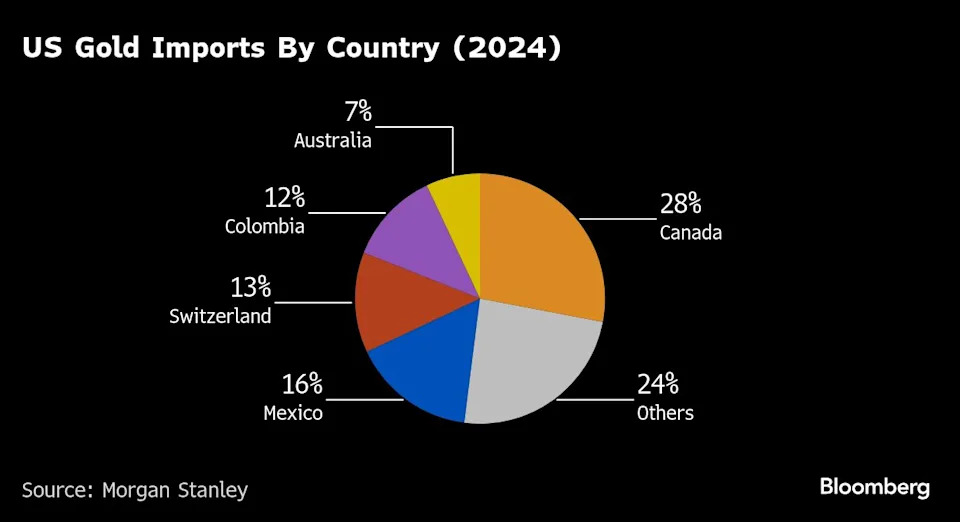
A global market based on gold bars shudders on tariff threat
Key Points
- US Tariff Ruling Chaos: A US Customs and Border Protection ruling on July 31, made public on Friday, suggested tariffs on gold imports, causing gold futures in New York to soar to a record high before prices dropped when the Trump administration hinted at no tariffs on gold bars.**
- Market Disruption: The potential tariffs threatened the global gold market's complex system of banks, refineries, and couriers, with Swiss refineries and Asian sales to the US halting, and warnings of severe impacts on the Comex futures market in New York.**
- Price Disparity: The tariff scare created a record gap between New York futures (over $3,530/ounce) and London benchmark prices (over $100 lower), with a 39% tariff on Swiss gold making shipments unfeasible unless prices hit $4,700/ounce.**
- Industry Concerns: Industry veterans and trade groups expressed disbelief and concern over the disruption, highlighting the fragility of the gold trade system and the thin margins of independent refineries, fearing long-term consequences.**
- Potential Resolution: Hope remains as the Trump administration plans an executive order to clarify misinformation about gold tariffs, potentially averting a crisis for the $1.1 trillion gold market.**
Summary
A recent US Customs and Border Protection ruling suggesting tariffs on gold imports sent shockwaves through the global gold market, causing New York futures to hit a record high above $3,530 an ounce before plummeting when the Trump administration indicated no tariffs would apply. Announced privately on July 31 and publicized on Friday, the ruling threatened the intricate network of banks, refineries, and couriers that underpin the $1.1 trillion gold trade, particularly affecting key hubs like New York, London, and Switzerland. Swiss refineries halted US shipments, and Asian sales paused, while a record price gap emerged between New York and London markets. Industry experts warned of dire consequences for the Comex futures market and the fragile gold trade system, exacerbated by potential tariffs on key suppliers like Canada and Mexico under Trump’s trade policies. The tariff threat, part of broader trade war volatility, highlighted the market’s vulnerability, with thin-margin refineries at risk of collapse. However, hope persists as the administration plans an executive order to clarify the situation, potentially averting a crisis. This incident underscores the profound impact of policy uncertainty on commodities, as traders, banks, and logistics firms brace for further changes.
yahoo
August 9, 2025
Stocks


